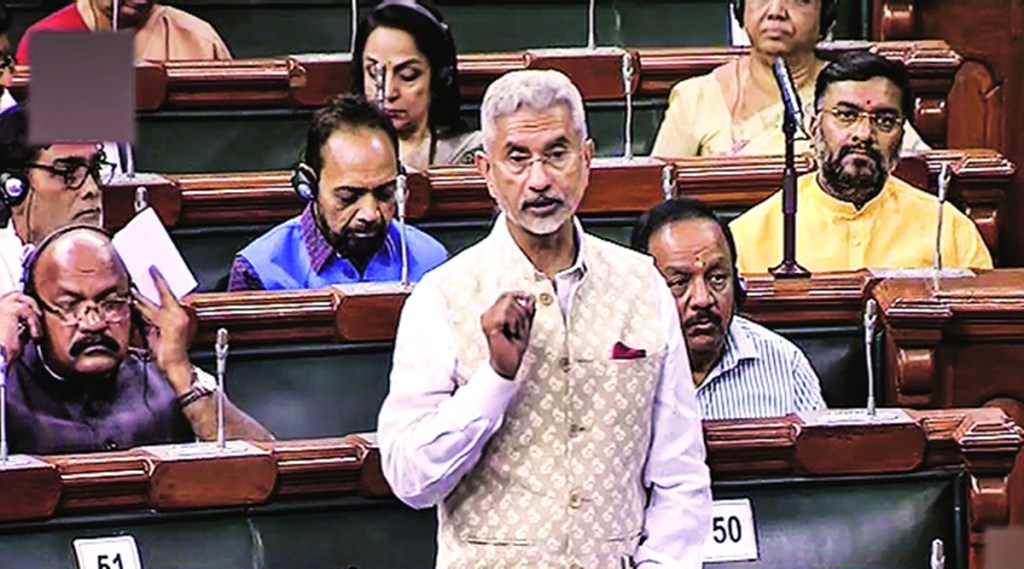A day after India, in its statement at the United Nations Security Council (UNSC) meeting, “unequivocally condemned” the civilian killings in the Ukrainian city of Bucha, the government told Lok Sabha on Wednesday that it supports the call for an “independent investigation” into the deaths.
Countering criticism on the Centre’s stand, External Affairs Minister S Jaishankar said India is “strongly against” the conflict, and “if it has chosen a side, it is a side of peace, and for an immediate end to violence”. Replying to the discussion on the situation in Ukraine, Jaishankar said: “We are strongly against the conflict, we believe that no solution can be arrived at by shedding blood and at the cost of innocent lives. In this day and age, dialogue and diplomacy are the right answers to any disputes”.
Stating that India was “deeply disturbed” by the Bucha killings, he said: “We strongly condemn the killings that have taken place there. This is an extremely serious matter and we support the call for an independent investigation.” Jaishankar also said that attributing political colour to India’s actions vis-a-vis the Ukraine situation was unfortunate. One should bear in mind that the contemporary global order has been built on the UN Charter, on respect for international law and for the sovereignty and territorial integrity of all states, he said.
“If India has chosen a side, it is a side of peace, and it is for an immediate end to violence. This is our principled stand and has consistently guided our position in international forums and debates, including in the UN,” Jaishankar said. “We encourage talks between Ukraine and Russia, including at the level of their presidents. Prime Minister (Narendra Modi) himself has spoken to them both in this regard. This was precisely the message that was conveyed to Russian Foreign Minister Sergey Lavrov when he was in Delhi. If India can be of any assistance in this matter, we would be glad to contribute,” he said.
He said that since the start, the signal from Ukrainian authorities was that the situation was “manageable” and under control. That put Indian students in a quandary about leaving the country. “We were in constant touch with Ukrainian authorities and even universities. We were very frustrated with some of the universities,” he said.
Addressing concerns raised by the Opposition about the future of the students who had returned from Ukraine, Jaishankar said India was in talks with Poland, Romania, Kazakhstan and Hungary for completion of their medical education. On the Opposition’s criticism that the government sent Union ministers to gain political mileage out of the situation, Jaishankar said their presence helped the evacuation process. “Had the four ministers not gone to countries neighbouring Ukraine, India would not have got the same level of cooperation from those countries. In fact, the ministers worked as a team,” he said.
Asserting that India has never undertaken such a largescale evacuation effort in the past, Jaishankar said its actions inspired other countries.
He said the conflict had a bearing on the present world order. “The world order keeps changing, that’s why G-7 became G-20. Global order is changing due to Covid, Afghanistan. The only way to protect ourselves is to reduce our dependency on foreign countries and be aatma nirbhar (self reliant),” he said.


